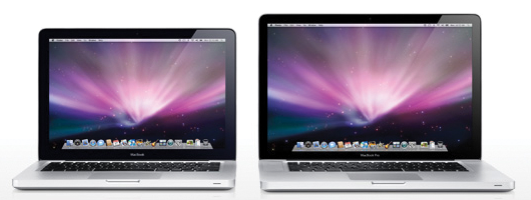Apple Ditches Green Manufacturing Standard for Products
Company has no plans to register future products, either.
Get Tom's Hardware's best news and in-depth reviews, straight to your inbox.
You are now subscribed
Your newsletter sign-up was successful
Apple has quietly made the decision to withdraw its products from the EPEAT registry. EPEAT announced the Cupertino-based company's decision on its website, revealing that Apple had notified the organization of its decision to withdraw its products from the registry as well as the fact that it would no longer be submitting products to EPEAT for environmental rating.
For those not in the know, EPEAT is a global registry for greener electronics. Electronics repair site iFixit describes EPEAT (Electronic Product Environmental Assessment Tool) as the leading green consumer electronics standard. For a product to be EPEAT certified, it must meet certain criteria organized under eight different categories. These include 'End-of-life management,' Packaging,' 'Product longevity/life extension,' and 'Material selection.' According to iFixit, Apple's mobile design direction is in conflict with the intended direction of the EPEAT standard. More specifically, EPEAT's standard calls for a certain degree of repairability, which we all know Apple has been moving away from over the last couple of years.
iFixit's Kyle Wiens spoke to his own EPEAT contacts who explained that product disassembly is important when it comes to recycling the product. The standard demands that certain elements be removable with commonly available tools or by hand. While batteries and RAM in Apple's MacBooks used to be replaceable, these are both now integrated and not user-replaceable. The company even uses special screws to make it more difficult for you to get inside the notebook. Wiens says that when they took the Retina Display MacBook Pro apart, the battery was fused to the upper case. When they finally managed it (the next day), the process they used actually punctured the battery "leaking hazardous goo all over." And these are professionals with oodles of experiences, tools, and lab space.
EPEAT did not offer any explanation as to why Apple was leaving, just that it had decided to withdraw its products from the EPEAT registry, wouldn't be putting forward any more products for certification, and that it was sorry to see Apple go. Similarly, Apple has yet to comment on its decision. We'll let you know if we hear anything more. In the meantime, you can check out EPEAT's mission here, and iFixit's disassembly of the MacBook Pro Retina Display here.
Follow @JaneMcEntegart on Twitter.
Get Tom's Hardware's best news and in-depth reviews, straight to your inbox.

Jane McEntegart is a writer, editor, and marketing communications professional with 17 years of experience in the technology industry. She has written about a wide range of technology topics, including smartphones, tablets, and game consoles. Her articles have been published in Tom's Guide, Tom's Hardware, MobileSyrup, and Edge Up.
-
The Greater Good So many companies around the world are taking extra steps to reduce their environmental impact, not Apple. Yet, I picture so many hipsters talking how much they care about the planet holding their iPhones they so dearly treasure.Reply -
A Bad Day Right, since when did Apple even consider practices that could hurt their quarterly budget reports?Reply -
husker The explanation is really quite simple. Apples products are all about sleek design; love 'em or hate em, the outward appearance of their products has always been a hallmark. In order to achieve the cutting edge look that they are after, and get everything to fit into the chassis and sill function, is tough enough without having to meet another standard for being all modular and "green".Reply -
_Cubase_ Seems like apple wants to go to all out "thermonuclear war" with the planet. And who says Steve legacy is fading?Reply -
face-plants I disagree with their decision but am not surprised about it. I've ragged on Apple in the past about their clean outward appearance and lack of an environmentally friendly manufacturing and product recycling system. Plenty of their competitors are able to do it. It seems like a selfish thing for the recently "most valuable company" in the world to not bother worrying about their impact on the planet.Reply
-
A Bad Day huskerThe explanation is really quite simple. Apples products are all about sleek design; love 'em or hate em, the outward appearance of their products has always been a hallmark. In order to achieve the cutting edge look that they are after, and get everything to fit into the chassis and sill function, is tough enough without having to meet another standard for being all modular and "green".Reply
They don't need non-repairability for their sleek design, look at the Ultrabooks and Sleekbooks.
They're doing it because they want a monopoly on repair services and prevent users from upgrading, thus forcing them to pay more for better laptops and replace their laptops more frequently. -
kutark It continues to baffle me that people think Apple is such a great company. I swear it seems like some kind of large scale quasi-stockholm syndrome...Reply -
kitekrazy1963 kutarkIt continues to baffle me that people think Apple is such a great company. I swear it seems like some kind of large scale quasi-stockholm syndrome...Reply
I feel the same way when something is labeled "green" or "environmental". People are always tricked into believe that's good. -
kyuuketsuki kitekrazy1963I feel the same way when something is labeled "green" or "environmental". People are always tricked into believe that's good.Please do explain how EPEAT is a bad thing.Reply
